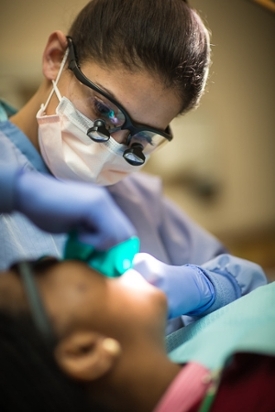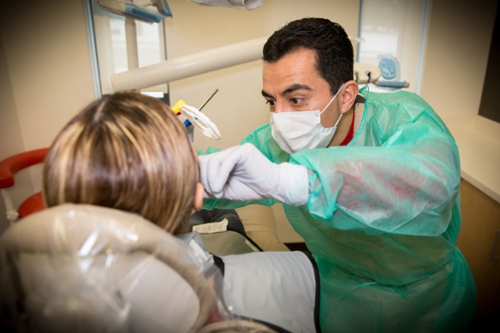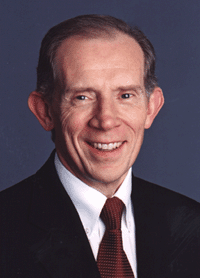Voices of U of U Health
Serving the Underserved
When the University of Utah founded its first new college in 60 years, the School of Dentistry (SOD) decided that its mission would include a commitment to care for the underserved. This model has proven positive in both community impact and in enhancing our students’ educational experience.
Our benefactors, Tye and Ray Noorda, for whom the Oral Health Sciences Building is named, devoutly believed in helping vulnerable people by providing access to oral health care. The work we’ve done to further that legacy has already made a substantial difference.
New Study on Positive Dental Care Benefits
A new study conducted at SOD shows that at-risk persons who receive comprehensive dental care experience better quality of life as measured by substantial improvements in employment and drug abstinence, as well as a dramatic decrease in homelessness.

In a recent issue of the Journal of the American Dental Association, I co-authored a report on the effects of comprehensive oral care for substance-use disorder treatment outcomes. Our study showed, for the first time, that participants who had their major oral health problems addressed by a dental professional stayed in treatment approximately two times longer, with more than 80 percent improvement in completing a substance abuse treatment program.
A resolute commitment to oral care for the underserved is also an amazingly effective educational tool for students. That is why we created a clinical program, nicknamed FLOSS (Facilitating a Lifetime of Oral health Sustainability for Substance use disorder patients). Through FLOSS, faculty and students work with patients to integrate oral health care into patients’ substance use treatment.
FLOSS gives students opportunities to serve and provides needed clinical experience. Dental students spend two-thirds of their term in clinical work. They provide supervised service for patients, and by their third year, they are performing sophisticated surgeries using scalpels, bone drills, and other tools of the trade. Through FLOSS and by working with other underserved patients, our students gain much more than clinical experience. They see themselves filling not only a community need but also the personal needs of their patients.
A Contribution to Total Education
Along with the practical educational good that comes from clinical experience, serving the underserved adds to a student’s total education. It is an education aimed at building empathy and a deeper understanding of human experience. This is not an official part of our curriculum, but it is at the core of our school’s mission.
Our dental students have learned that when people struggle financially, it can also mean they are struggling medically. Students have also learned that the high rate of poor oral health among disabled persons is often not coincidental because they may live in special homes or institutions where they do not have access to dental care.
Certain health conditions make dental care more complicated, but that helps students develop a wider skill set. Some of the patients our students see take five to ten different medications or are living with serious chronic diseases. They treat patients with diabetes, cancer, and complex genetic conditions.
 Our students know that society's disadvantaged are human have the same kinds of needs for better health. When somebody stops and takes the time to talk to them and develop a relationship, these patients respond. More talk and more interaction, as patients describe their lives and overall health concerns, leads to better outcomes.
Our students know that society's disadvantaged are human have the same kinds of needs for better health. When somebody stops and takes the time to talk to them and develop a relationship, these patients respond. More talk and more interaction, as patients describe their lives and overall health concerns, leads to better outcomes.
SOD takes pride in its mission of service. We will build on it, strengthen it to fulfill the community need, and further the experience and education it provides students. We see our program as applicable to the nation’s other dental schools.
Caring for the underserved fosters empathy and a commitment to providing the best treatment for all patients. This is the ultimate education at the School of Dentistry.
